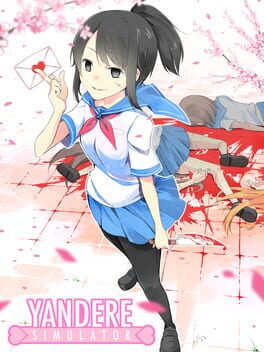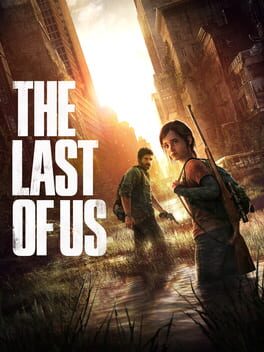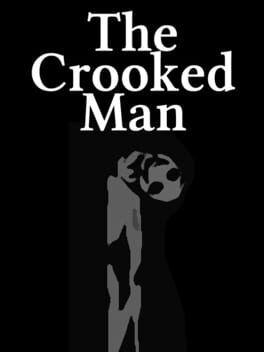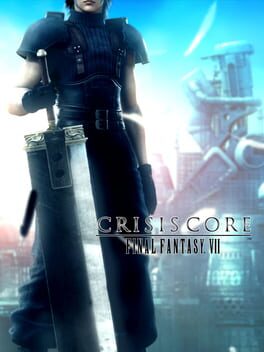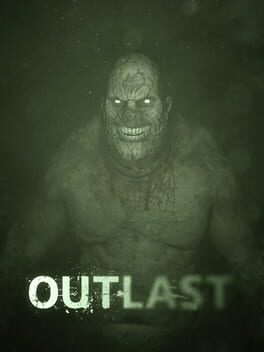pinerun25
7 reviews liked by pinerun25
Final Fantasy IX
2000
It's hard to put into words what hearing "The Place I'll Return To Someday" as I booted Final Fantasy IX almost 20 years after I first played it made me feel. Whenever people bring up IX on the FF discourse, it's inevitable that it will be referenced as the "return to the roots" of the franchise, a celebration and throwback to the old FF style of the NES and SNES day. That would be however selling IX short, as it stands as a wholy unique and standout in the series, filled with a very specific magic and craft not found in the rest of the entries.
Coming at the tail end of the Playstation's life cycle, IX presents itself as the most confident and polished 32 bit FF without the awkwardness of VII's first steps into the 3D age or VIII's identity crisis. Framed as a Shakespearean tale, IX boasts the most lavished and outstanding pre-rendered backgrounds the system can offer, a fantastical believable world to explore drenched in personality, and arguably one of the best soundtracks in the whole franchise, all combining to create an impressive and engaging emotional roller-coaster.
Of course, what elevates IX even further is without a doubt its cast of characters. Moving away from the gloomy and teenager previous two entries, IX presents a group of charismatic misfits straight out of a drama play that have such wonderful interplay and banter between each other. From Zidane's playful flirtishious and carefree nature, to Steiner's obnoxious gallantry and prissiness, to Vivi's bashful inquisite and cowardly personality, it's incredibly easy to fall in love with the cast and care for each of them as the plot gets going.
It's understandable that some might look at IX as the "childish" entry in the PS1 trilogy, since it's presentation and script give a great vibe of fairytale adventuring, but it's within those expectations and constraints that IX shines the most. As the story develops, our protagonists find themselves at numerous crossroads and conflits that speak to their struggles and desires, and the game presents surprisingly poignant and mature subject matters, like confronting one's own mortality, that turn IX into an incredible personal and profound experience.
As our heroes come apart at the end of the first act when things start going south and they reunite back at the start of the third act, it becomes evident to see that IX has a firm grasp on the power of storytelling and uses it to its fullest advantage. Zidane and Garnet's natural relationship development propels the narrative forward beautifully, and the members that progressively get added to your team only end up enriching it, and by the end when IX uses the power of its medium to deliver the "Your're Not Alone" setpiece to answer the age old question of why you should strive to be good, you will know you will carry these characters with you beyond the game.
IX doesnt have the best combat nor the best graphics in the series. It doesnt have the history and influence titles like VI or VII have. The third act isnt as tightly constructed as the previous two, and Amarant gets into the team a little to late for the player to care for him. It's not perfect. But it doesnt have to be. IX is the quintessencial example of "bigger than the sum of its parts", and you will be hard pressed to not feel a tingle of joy mixed with sadness as those credits roll. It was nice to revist Final Fantasy IX, the game that first showed me that there was more to videogames than just levels to be completed. Goodbye, the place I'll return to someday.
Coming at the tail end of the Playstation's life cycle, IX presents itself as the most confident and polished 32 bit FF without the awkwardness of VII's first steps into the 3D age or VIII's identity crisis. Framed as a Shakespearean tale, IX boasts the most lavished and outstanding pre-rendered backgrounds the system can offer, a fantastical believable world to explore drenched in personality, and arguably one of the best soundtracks in the whole franchise, all combining to create an impressive and engaging emotional roller-coaster.
Of course, what elevates IX even further is without a doubt its cast of characters. Moving away from the gloomy and teenager previous two entries, IX presents a group of charismatic misfits straight out of a drama play that have such wonderful interplay and banter between each other. From Zidane's playful flirtishious and carefree nature, to Steiner's obnoxious gallantry and prissiness, to Vivi's bashful inquisite and cowardly personality, it's incredibly easy to fall in love with the cast and care for each of them as the plot gets going.
It's understandable that some might look at IX as the "childish" entry in the PS1 trilogy, since it's presentation and script give a great vibe of fairytale adventuring, but it's within those expectations and constraints that IX shines the most. As the story develops, our protagonists find themselves at numerous crossroads and conflits that speak to their struggles and desires, and the game presents surprisingly poignant and mature subject matters, like confronting one's own mortality, that turn IX into an incredible personal and profound experience.
As our heroes come apart at the end of the first act when things start going south and they reunite back at the start of the third act, it becomes evident to see that IX has a firm grasp on the power of storytelling and uses it to its fullest advantage. Zidane and Garnet's natural relationship development propels the narrative forward beautifully, and the members that progressively get added to your team only end up enriching it, and by the end when IX uses the power of its medium to deliver the "Your're Not Alone" setpiece to answer the age old question of why you should strive to be good, you will know you will carry these characters with you beyond the game.
IX doesnt have the best combat nor the best graphics in the series. It doesnt have the history and influence titles like VI or VII have. The third act isnt as tightly constructed as the previous two, and Amarant gets into the team a little to late for the player to care for him. It's not perfect. But it doesnt have to be. IX is the quintessencial example of "bigger than the sum of its parts", and you will be hard pressed to not feel a tingle of joy mixed with sadness as those credits roll. It was nice to revist Final Fantasy IX, the game that first showed me that there was more to videogames than just levels to be completed. Goodbye, the place I'll return to someday.
Final Fantasy IX
2000
The Last of Us
2013
The Crooked Man
2012
RESUMEN del tocho: fanservice de manual que sólo disfrutarán algunos fans acérrimos.
Crisis Core (PSP, 2007) es un título que abarca aprox. los siete años previos a la trama que ocurre en FFVII (PSX, 1997). En esta precuela, el jugador asume el papel de Zack, un soldado de 1ª clase que compartió trabajo con Cloud (prota de FFVII) en la estructura paramilitar de la multinacional Shinra. Es por ello que su historia amplía y enriquece el lore del FFVII original.
No se puede negar que FFVII fue un éxito tanto de crítica como de ventas por lo que han sido múltiples los intentos de Square por seguir aprovechando su filón. Crisis Core no es una excepción y, además, su argumento es utilizado como herramienta para ampliar el lore del universo de FFVII.
Aunque, en mi humilde opinión, se ejecuta bastante mal: CC podría haber profundizado en la relación de Zack y Cloud, de Zack y Aeris, la figura de Sefirot en general y los abusos de Shinra. Algunas de las anteriores las hace bien (echar mierda a Shinra y la relación de Zack y Cloud), otras las intenta hacer pero le sale mal (la relación de Zack y Aeris... no he visto peor narración de amor en mi vida) y otras directamente decide destruirlas (la figura de Sefirot, horrible lo que hace este juego). Además, decide dedicarle un considerable peso de la trama a Angeal y Génesis, dos personajes que en el original NO existen pero Square decide sacárselos de la chistera y que le hacen flaquísimo favor al lore de este universo en general y al argumento del juego en particular.
Lo mejor
- historia para todos. La trama que se nos cuento y cómo se nos cuenta es apta tanto para aquellos que hayan jugado a FFVII como para aquellos que no.
- sistema de combate y encuentros con enemigos. Siendo un RPG, tiene un sistema de combate de acción en el que son importantes elementos como atacar por la espalda, cubrirse o esquivar. Sus combates están muy pulidos y no se abusa (alguna excepción hay) de los encuentros con enemigos, por lo que es bastante entretenido ir reventando culos con semejante pollón espadón.
- mecánica de materia. No pretende reinventar nada pero considero que es una adaptación muy digna del sistema de ranuras y materias del original: por un lado simplifican notablemente el número de materias (lo cual se agradece) por lo que es menor el número de materias que "dejas en el baúl y jamás usas" (cosa que era bastante normal en el original). Por otro lado, la reimaginación de su combinatoria y su síntesis invita a explorar sus opciones.
- historia breve y concisa. Con algunas partes interesantes y que complementan bien el lore del original (el peso de Wutai y su conflicto así como la relación Zack-Cloud). Su corta duración (de la historia principal, ya que las sidequests fácilmente triplican la duración del título) y el hecho de que vaya al grano a nivel narrativo me parece que era lo que había que hacer (empezar a tirabuzonear la historia y alargarla demasiado hubiera sido contraproducente -imho)
- las "misiones". La "mejor" manera de farmear en este juego es a través de unas sidequests que se van desbloqueando progresivamente y a las que se accede desde los save points. Separar tan tajantamente la historia principal de actividades secundarias se agradece sobre todo en un primer momento. Lo malo es que hay muchísimas y son muy repetitivas (hay como 4 escenarios únicos que se van reciclando y tampoco hay mucha variedad de enemigos) y más pronto que tarde acaban cansando.
Lo peor
- historia innecesaria y que apunta a la dirección equivocada: me remito a lo dicho en el 4º párrafo. Solo añadiré que lo de inventarse pueblos que luego desaparecen sin dejar rastro está un poco cogido con pinzas pero, bueno, aceptamos pulpo y nos lo creemos (ya nos creímos en el original que Shinra tapaba tragedias como la del incendio de Nibelheim, el desastre de Gongaga y Corel).
- fanservice: la obra es un fanservice de manual, no hay por donde coger el guión del juego. Si hubiera sido un título con personajes y ubicaciones completamente desligadas de FFVII hubiera sido un título mediocre pero válido. Pero siendo como es un exprimidor de zumo de Mako me parece que queda como producto únicamente apto para fans acríticos que aceptan casi cualquier cosa.
- la banda sonora: la peor OST de todos los juegos de Square-Enix que yo he tocado.
- no explica la relación entre el planeta, la corriente vital y loveless: en el FFVII original, cuando profundizas en el cráter del norte simplemente te encuentras con cuevas y galerías habitadas por monstruos, cuando en Crisis Core haces lo mismo en el subsuelo de Banora, te encuentras con que hay restos de una civilización y que las pajas mentales de Génesis con Loveless no son fruto de su abuso de los porros sino que es real. Todo es muy "lo hizo un mago" que solo sirve para reforzar la figura del (innecesario) Génesis.
- las alas. Las putas alas: la inmensa mayoría de jrpgs tienen bosses finales con varias fases y monstruosas formas o transformaciones. FF no es una excepción, la inmensa mayoría de sus bestiales final bosses presentan un rasgo común: las alas (hay muy pocas excepciones, repasadlo si queréis). Sefirot no es una excepción. Pero lo que es un mero recurso arrastrado desde los 80 para justificar escalas de poder y power-ups ("mira que grande, monstruoso e intimidante que se ve este boss, eso es porque es muy fuerte") en Crisis Core se decide intentar justificar estas alas argumentalmente... pues ok, no hacía ninguna falta, pero ok.
- Sefirot, ese Dios downgradeado a humilde mortal... pero eso es otro tema.
Crisis Core (PSP, 2007) es un título que abarca aprox. los siete años previos a la trama que ocurre en FFVII (PSX, 1997). En esta precuela, el jugador asume el papel de Zack, un soldado de 1ª clase que compartió trabajo con Cloud (prota de FFVII) en la estructura paramilitar de la multinacional Shinra. Es por ello que su historia amplía y enriquece el lore del FFVII original.
No se puede negar que FFVII fue un éxito tanto de crítica como de ventas por lo que han sido múltiples los intentos de Square por seguir aprovechando su filón. Crisis Core no es una excepción y, además, su argumento es utilizado como herramienta para ampliar el lore del universo de FFVII.
Aunque, en mi humilde opinión, se ejecuta bastante mal: CC podría haber profundizado en la relación de Zack y Cloud, de Zack y Aeris, la figura de Sefirot en general y los abusos de Shinra. Algunas de las anteriores las hace bien (echar mierda a Shinra y la relación de Zack y Cloud), otras las intenta hacer pero le sale mal (la relación de Zack y Aeris... no he visto peor narración de amor en mi vida) y otras directamente decide destruirlas (la figura de Sefirot, horrible lo que hace este juego). Además, decide dedicarle un considerable peso de la trama a Angeal y Génesis, dos personajes que en el original NO existen pero Square decide sacárselos de la chistera y que le hacen flaquísimo favor al lore de este universo en general y al argumento del juego en particular.
Lo mejor
- historia para todos. La trama que se nos cuento y cómo se nos cuenta es apta tanto para aquellos que hayan jugado a FFVII como para aquellos que no.
- sistema de combate y encuentros con enemigos. Siendo un RPG, tiene un sistema de combate de acción en el que son importantes elementos como atacar por la espalda, cubrirse o esquivar. Sus combates están muy pulidos y no se abusa (alguna excepción hay) de los encuentros con enemigos, por lo que es bastante entretenido ir reventando culos con semejante pollón espadón.
- mecánica de materia. No pretende reinventar nada pero considero que es una adaptación muy digna del sistema de ranuras y materias del original: por un lado simplifican notablemente el número de materias (lo cual se agradece) por lo que es menor el número de materias que "dejas en el baúl y jamás usas" (cosa que era bastante normal en el original). Por otro lado, la reimaginación de su combinatoria y su síntesis invita a explorar sus opciones.
- historia breve y concisa. Con algunas partes interesantes y que complementan bien el lore del original (el peso de Wutai y su conflicto así como la relación Zack-Cloud). Su corta duración (de la historia principal, ya que las sidequests fácilmente triplican la duración del título) y el hecho de que vaya al grano a nivel narrativo me parece que era lo que había que hacer (empezar a tirabuzonear la historia y alargarla demasiado hubiera sido contraproducente -imho)
- las "misiones". La "mejor" manera de farmear en este juego es a través de unas sidequests que se van desbloqueando progresivamente y a las que se accede desde los save points. Separar tan tajantamente la historia principal de actividades secundarias se agradece sobre todo en un primer momento. Lo malo es que hay muchísimas y son muy repetitivas (hay como 4 escenarios únicos que se van reciclando y tampoco hay mucha variedad de enemigos) y más pronto que tarde acaban cansando.
Lo peor
- historia innecesaria y que apunta a la dirección equivocada: me remito a lo dicho en el 4º párrafo. Solo añadiré que lo de inventarse pueblos que luego desaparecen sin dejar rastro está un poco cogido con pinzas pero, bueno, aceptamos pulpo y nos lo creemos (ya nos creímos en el original que Shinra tapaba tragedias como la del incendio de Nibelheim, el desastre de Gongaga y Corel).
- fanservice: la obra es un fanservice de manual, no hay por donde coger el guión del juego. Si hubiera sido un título con personajes y ubicaciones completamente desligadas de FFVII hubiera sido un título mediocre pero válido. Pero siendo como es un exprimidor de zumo de Mako me parece que queda como producto únicamente apto para fans acríticos que aceptan casi cualquier cosa.
- la banda sonora: la peor OST de todos los juegos de Square-Enix que yo he tocado.
- no explica la relación entre el planeta, la corriente vital y loveless: en el FFVII original, cuando profundizas en el cráter del norte simplemente te encuentras con cuevas y galerías habitadas por monstruos, cuando en Crisis Core haces lo mismo en el subsuelo de Banora, te encuentras con que hay restos de una civilización y que las pajas mentales de Génesis con Loveless no son fruto de su abuso de los porros sino que es real. Todo es muy "lo hizo un mago" que solo sirve para reforzar la figura del (innecesario) Génesis.
- las alas. Las putas alas: la inmensa mayoría de jrpgs tienen bosses finales con varias fases y monstruosas formas o transformaciones. FF no es una excepción, la inmensa mayoría de sus bestiales final bosses presentan un rasgo común: las alas (hay muy pocas excepciones, repasadlo si queréis). Sefirot no es una excepción. Pero lo que es un mero recurso arrastrado desde los 80 para justificar escalas de poder y power-ups ("mira que grande, monstruoso e intimidante que se ve este boss, eso es porque es muy fuerte") en Crisis Core se decide intentar justificar estas alas argumentalmente... pues ok, no hacía ninguna falta, pero ok.
- Sefirot, ese Dios downgradeado a humilde mortal... pero eso es otro tema.
